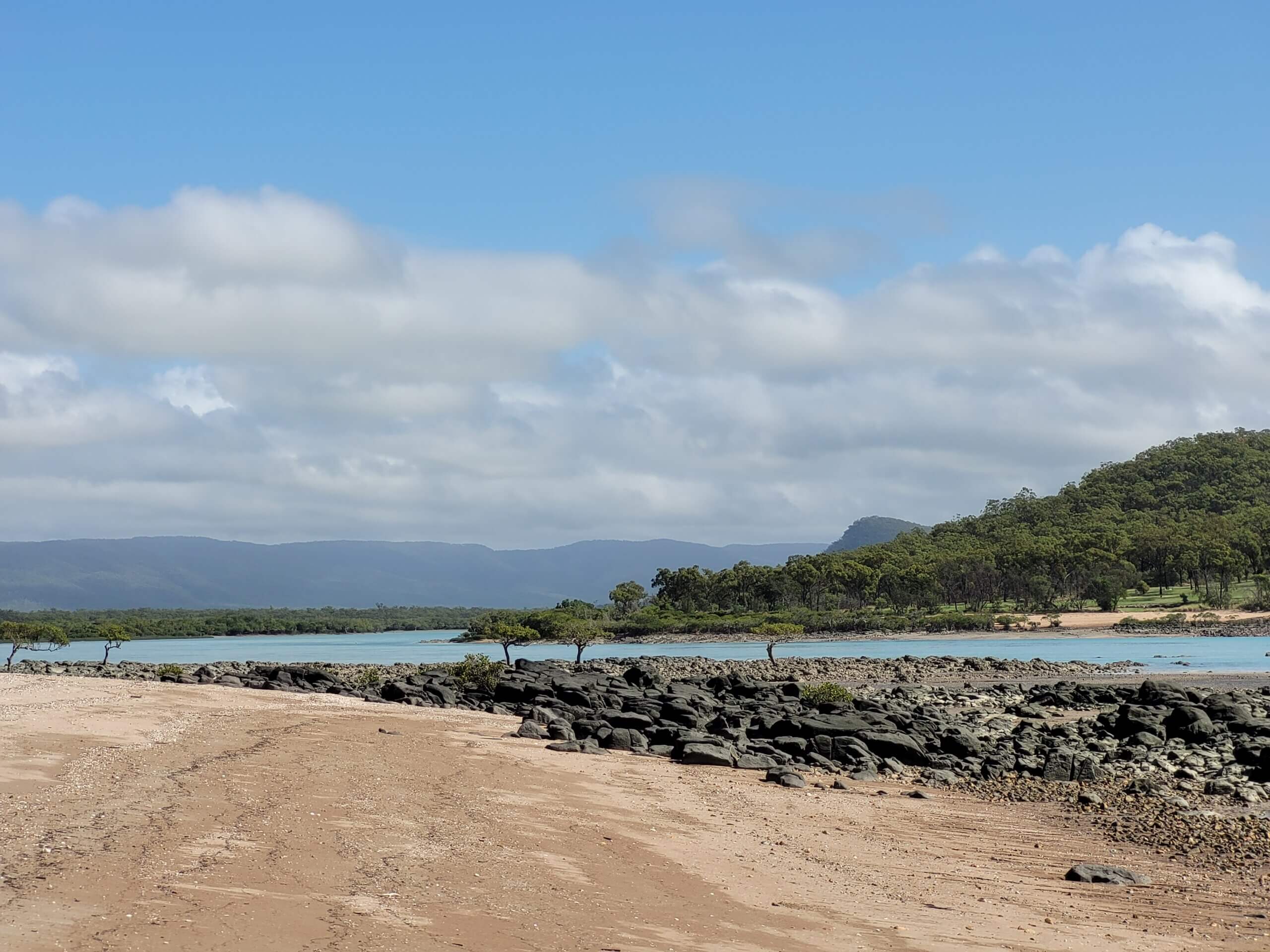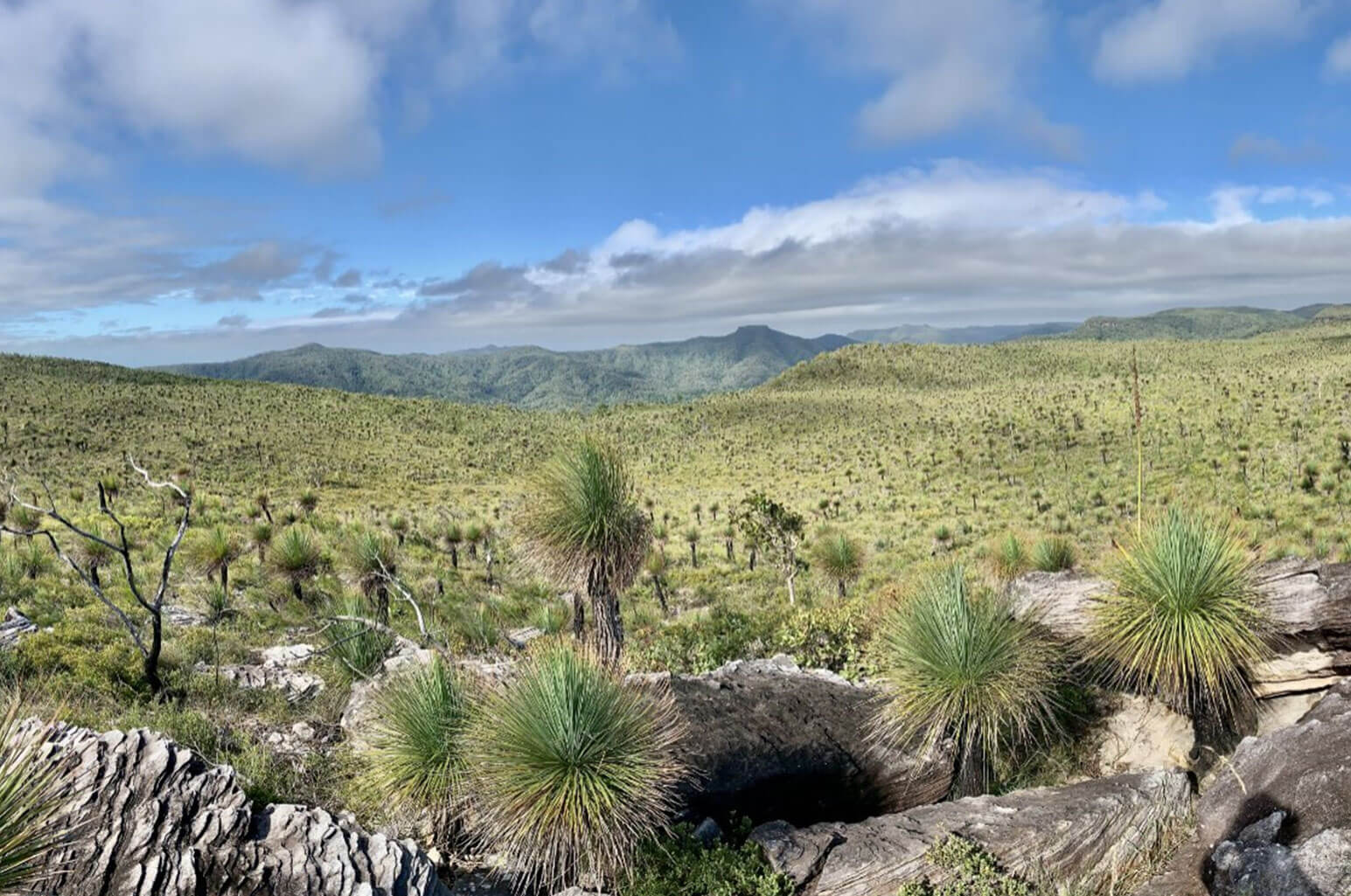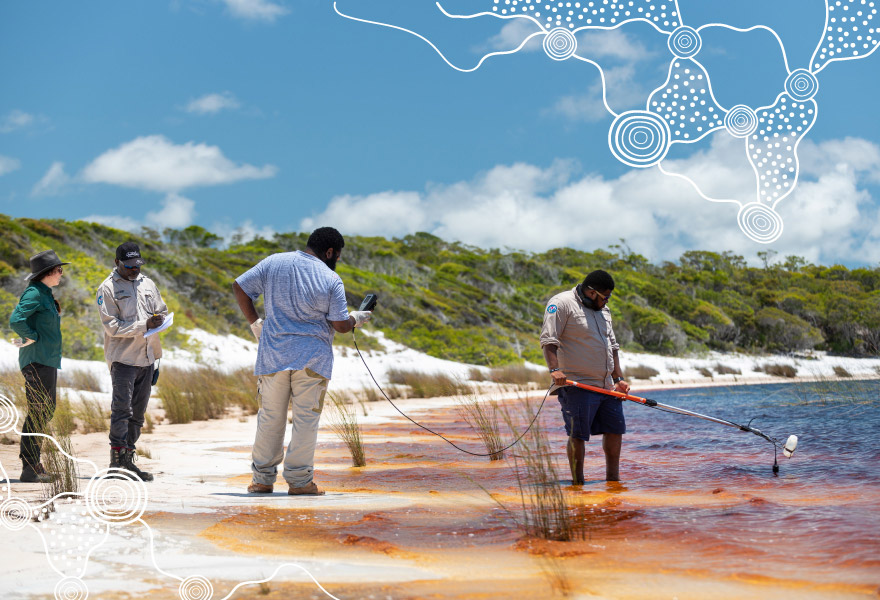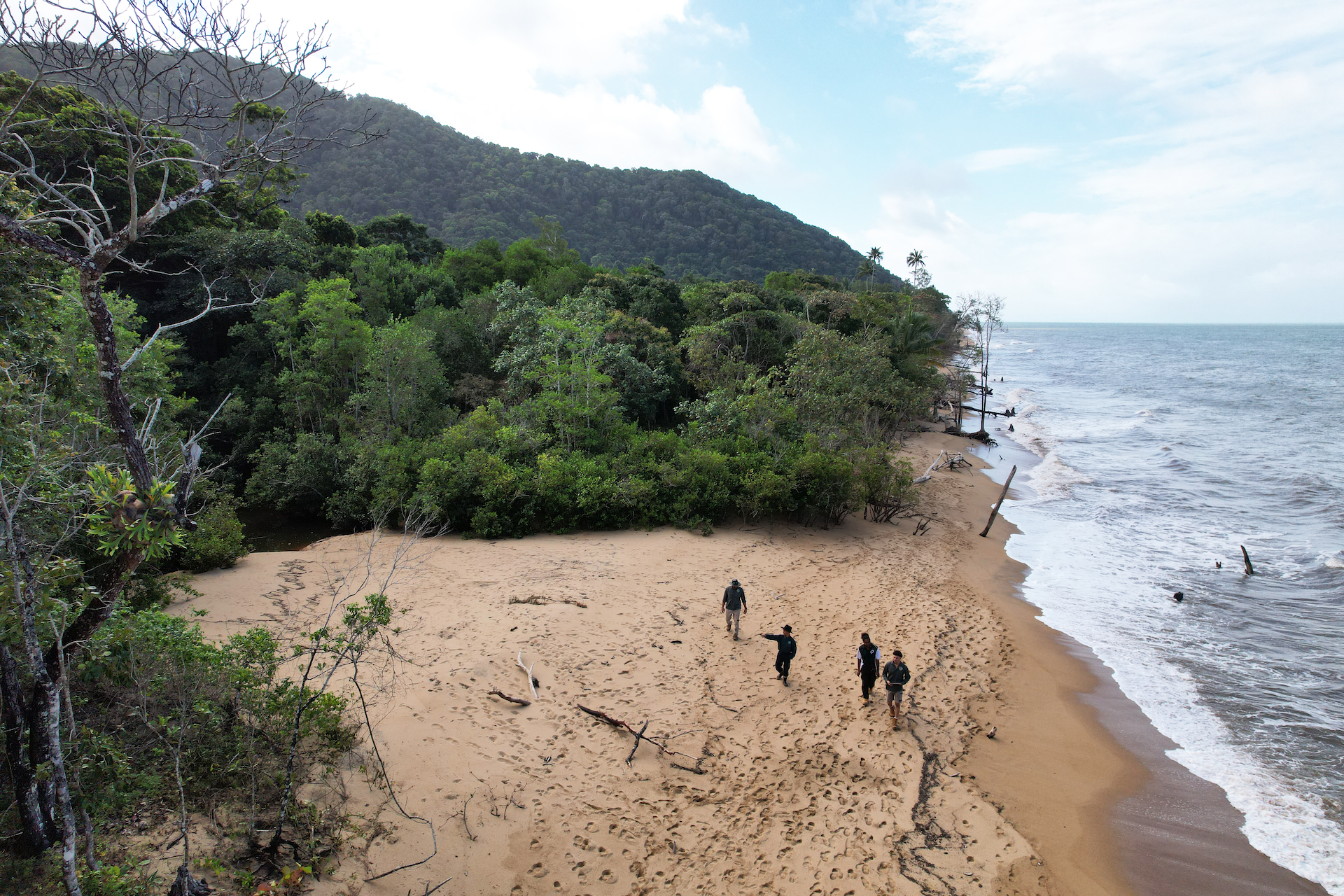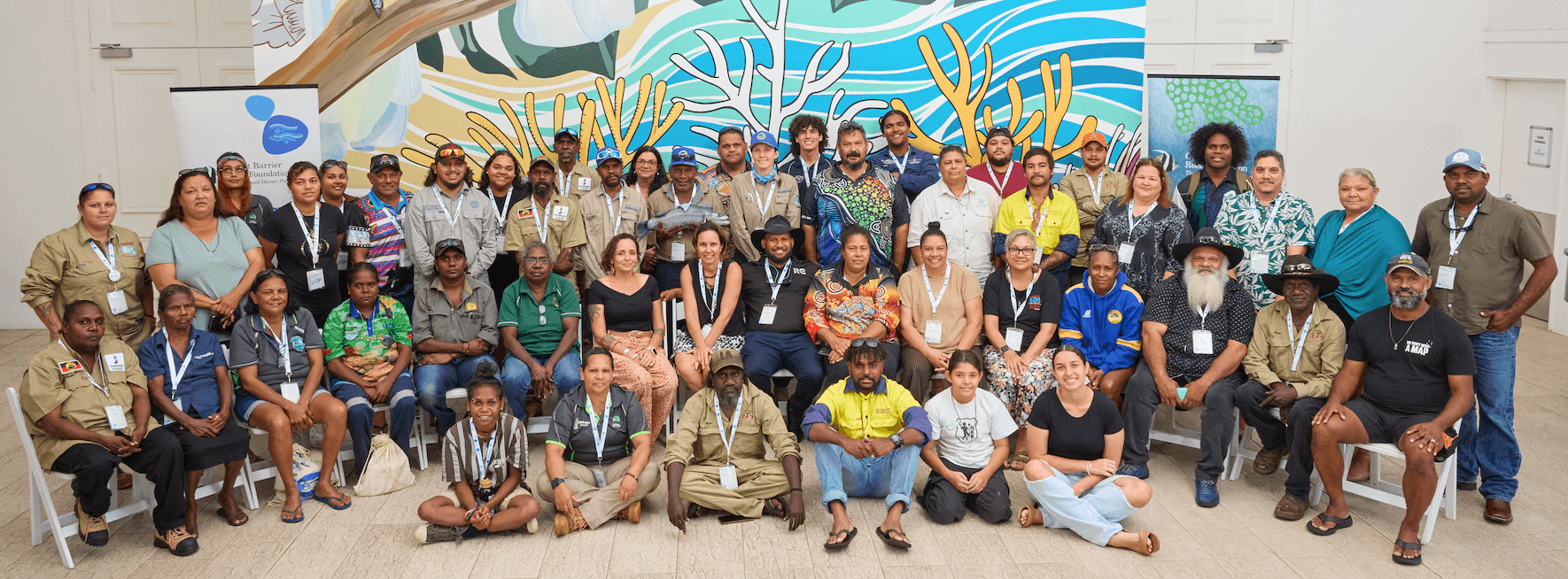
MUNGALLA WETLANDS WATER QUALITY PROJECT
Nywaigi Traditional Owners have successfully developed the skillsets and capabilities needed to restore and monitor wetlands
Story created in consultation with the Nywaigi Traditional Owners.
Mungalla Station, located approximately 12 kilometres east of the sugar cane township of Ingham in North Queensland and about a 1.5-hour drive north of Townsville, is a significant site for the Nywaigi people. The Mungalla Aboriginal Business Corporation (MABC) and its parent body, the Nywaigi Aboriginal Land Corporation, successfully received title to Mungalla Station in 1999 with a mandate to improve the economic and social position of their people. The combined membership of both corporations includes seven original Nywaigi clans, equating to more than 600 recognised Traditional Owners.
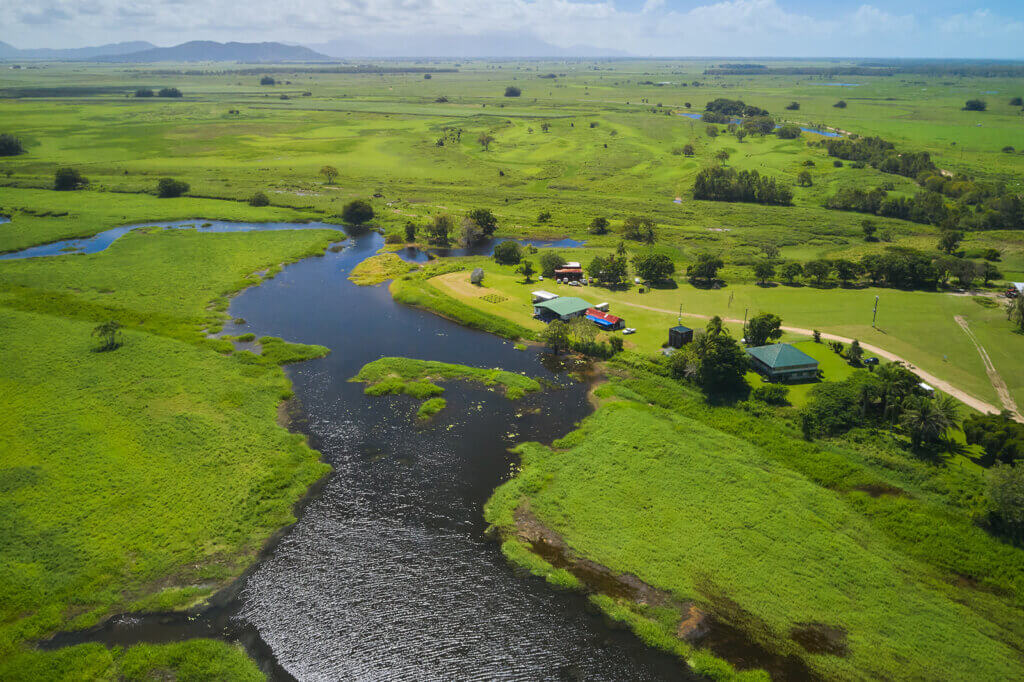
On taking ownership of Mungalla Station, a long-time cattle property and stud the, Nywaigi people found they had inherited the impacts of poor land management. A bund wall had been built to expand grazing land by preventing tidal flows into the wetlands. This had change tidal, saline wetland systems to freshwater systems which became choked with weeds. Over several years, the Nywaigi people collaborated with third-party organisations to enhance the health, quality, and function of their wetlands by removing sections of the bund wall to restore flows and monitor the impacts on the ecosystem. While these projects positively impacted the natural environment of Mungalla Station, the benefits weren’t sustained (the openings closed) and the expertise and knowledge of Nywaigi Traditional Owners and rangers weren’t sufficiently developed to enable ongoing, locally implemented maintenance and monitoring of the restoration works and its impacts.
The Mungalla Wetlands Water Quality Project has successfully addressed this gap by developing the key skill sets and capabilities needed for Nywaigi Traditional Owners to monitor their wetlands independently, through formal training and on-Country work removing weeds from the wetlands and tributaries and restoring saltwater flows by fixing salt water bores. This initiative focused on improving overall water quality and reducing sediment from Palm Creek into the Great Barrier Reef Catchment.
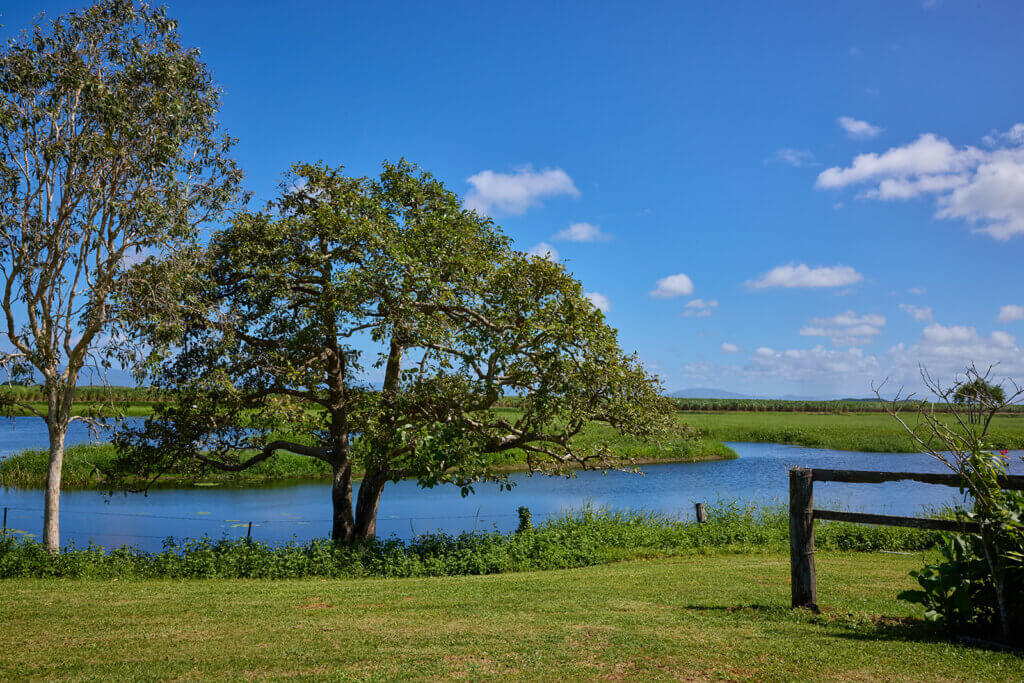
Project achievements
This project significantly enhanced the capabilities of Nywaigi Traditional Owners in wetland management and water quality monitoring. Additionally, the project supported further wetland restoration and rejuvenation efforts, contributing to the natural function of the wetlands.
The Mungalla Wetlands Water Quality Project has been a remarkable success, transforming both the ecological health of Mungalla Station and the capabilities of the Nywaigi Traditional Owners. The project’s achievements are manifold, starting with the employment of five Nywaigi Rangers dedicated to maintaining the wetlands. This effort has not only created jobs but also supports the deep connection between the Rangers and their ancestral land.
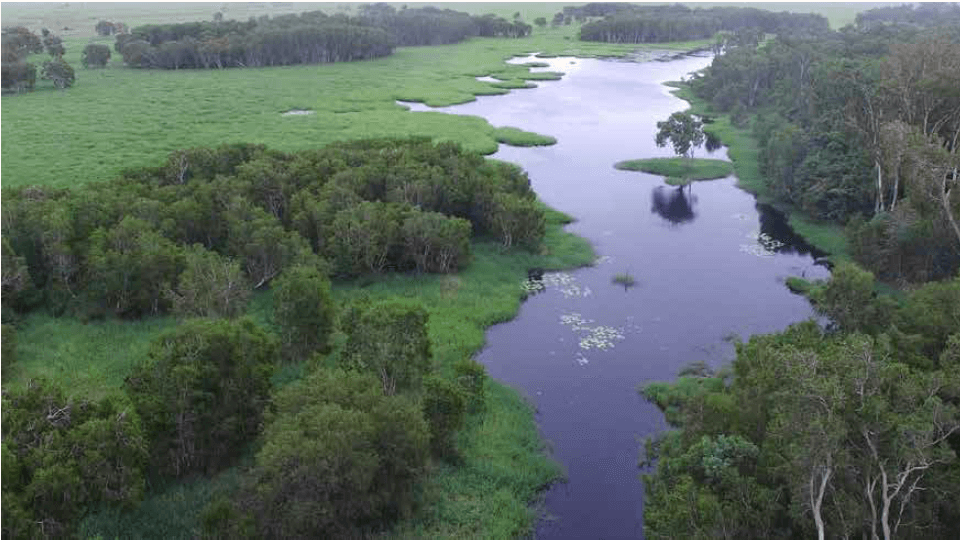
One of the significant outcomes was the recording of ten native fish species and the return of over 200 waterbirds to the area, indicating a thriving ecosystem. The reintroduction of saltwater into a freshwater wetland, achieved by removing a human-made earth wall, played a crucial role in this ecological revival. This action naturally destroyed invasive freshwater weeds, allowing native aquatic plants to flourish. As a result, the habitat for native and migratory birds was enhanced, supporting a diverse array of wildlife.
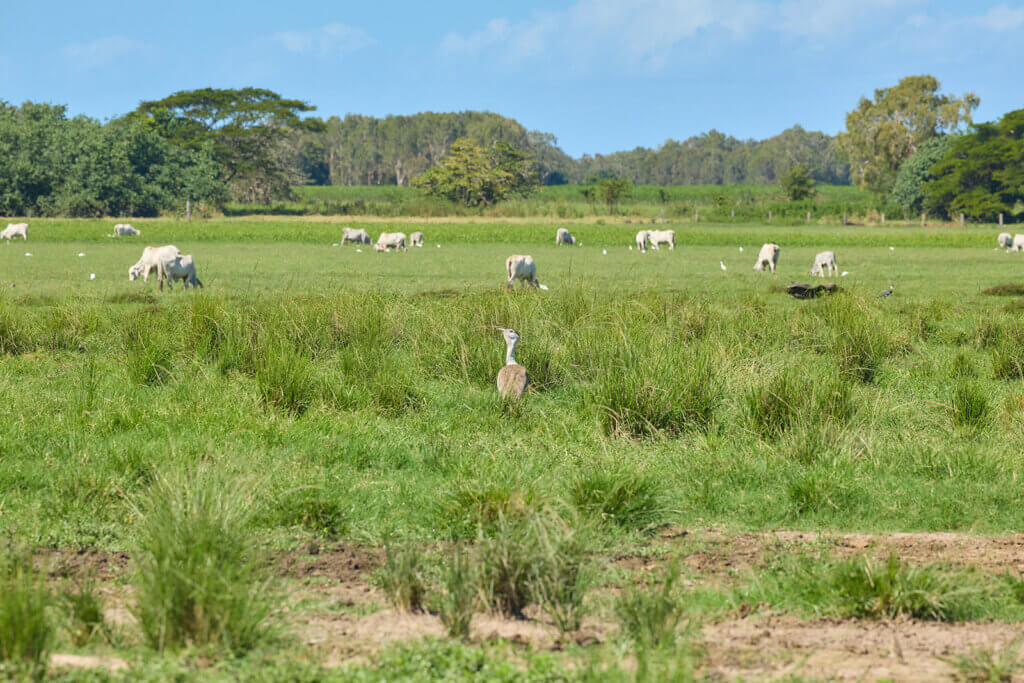
The reconnection of saltwater and freshwater systems also enabled fish such as barramundi to access the productive floodplain, further enriching the biodiversity. This intervention led to improved water quality, creating a healthier environment for aquatic animals.
In addition to these environmental benefits, the project has significantly upskilled the Nywaigi Rangers in land and water management practices. They have received training in weed spraying, fencing, and invasive species management, equipping them with the expertise needed to sustain these efforts independently.
The restoration efforts also focused on maximising blue carbon opportunities, contributing to climate change mitigation. This aspect of the project underscores the broader environmental impact, linking local actions to global environmental goals. Moreover, the restored wetlands now support natural and cultural values, opening up new eco-tourism opportunities at Mungalla Station. These opportunities not only generate income but also allow the Nywaigi people to share their rich cultural heritage and the story of their successful conservation efforts with visitors.
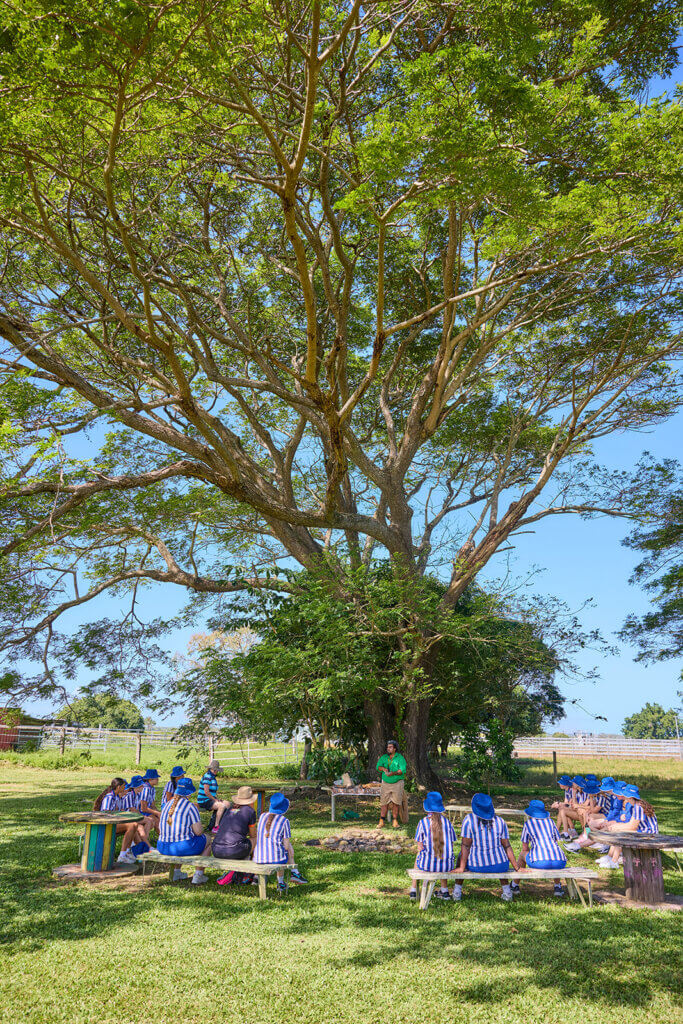
Looking ahead
The Mungalla Wetlands Water Quality Project has been a transformative initiative, enhancing the ecological health of Mungalla Station and empowering Nywaigi Traditional Owners with the skills and knowledge to sustain their land management practices independently.
Learn more about the Nywaigi Aboriginal Land Corporation and Mungalla Aboriginal Business Corporation.
